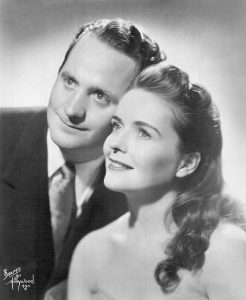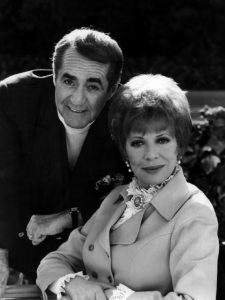I swear time speeds up every month!
It’s time to hand my blog over to the fabulous Nell Peters…Where did September go?
Hello, my sweeties! Here we are already at the end of September – yikes. The children are back at school and there is no end of Christmas tattiness infiltrating every available space in the shops – even worse, antique Slade CDs have been dusted off in preparation for their annual warble. Since around Easter, each time I log on to internet banking, they’ve been advising me to start saving for Christmas – and the Christmas Shop in Selfridges has been open for weeks, for goodness sake. Any minute now the clocks will go back an hour so we will be groping around in the dark from about 3 pm. Depressing stuff.
But not so depressing as 30th September was in 1551 for a certain Japanese gentleman. A coup staged by the military faction of Japan’s Ōuchi clan forced their overlord to commit suicide, and their city was burned. Ouchy indeed.

Seppuku
Seppuku is what we more commonly know as hara-kiri, or harakiri, the Japanese form of ritual suicide, meaning to slice the belly, or abdomen – in short, disembowelment. Mega ouchy. Originating with the samurai, it enabled men to die with honour rather than fall into the hands of their enemies and be tortured, or as a form of capital punishment for those who had committed serious offences. Similarly, it was a culturally acceptable exit for warriors who had somehow brought shame upon themselves, and later practiced by other Japanese folk to restore honour to themselves or their families.
A short blade is stabbed into the belly and drawn from left to right, slicing it open – if the wound is deep enough it will sever the descending aorta (the section of the aorta which runs from chest to abdomen, the aorta being the largest artery in the body), resulting in rapid death through blood loss. Call me squeamish, but I’m pretty sure I could live with any dishonour I’d brought upon myself, given the gory alternative…
But long before the emergence of the bushi (samurai class), Japanese fighters were highly trained to use swords and spears. Women learned to use naginata, kaiken, and the art of tantojutsu in battle and their training ensured protection for communities whose male contingent had toddled off to battle elsewhere. One of these women, Empress Jingū, used her skills to promote economic and social change and was the onna bugeisha (female martial artist) who led a bloodless invasion of Korea in 200 AD, after her husband Emperor Chūai, the fourteenth emperor of Japan, was killed in battle. Her image was the first of a woman to be featured on Japanese banknotes – designed to stop counterfeiting, her picture was printed on oblong paper. Ah, so.
On the family front, we’ve had a couple of birthday weekends away – the first in London for the OH’s on 31st August. #4 son and his family had been to Legoland the day before and met up with us, along with #2, who lives near where we stayed. We didn’t do anything wildly exciting, but it was a good time and went some way to stave off the feelings of impending doom I tend to experience on 31/8, anticipating the slippery slope to cold weather, endless dark and the elongated run up to the dreaded festive shenanigans. Bah humbug!

The ma-in-law celebrated her ninetieth mid-September, for which a sister-in-law flew in from Australia and #3 son from India – the sister-in-law who lives in South Africa was a no-show as she hadn’t renewed her passport. Doh! During the lead up to the great day, there were a few anxious moments concerning the threat of BA pilot strikes, but most of us managed to turn up more or less on time. Sherborne in Dorset, being something of a quiet backwater with a predominately OAP demographic, probably didn’t know what hit it – especially the Italian restaurant we invaded on the Saturday evening.

On 4th September, there was a whopping ‘how on earth did that happen?’ moment, when oldest GD, started senior school. From scary beginnings – premature, low birth weight and weeks spent in SCBU (mum is diabetic, which can cause problems), she’s grown into a tall, very together young lady, who looked super-smart in her kilt-type skirt and blazer, which naturally she hates. She should think herself lucky – in my day, it was ghastly regulation indoor shoes, equally ghastly regulation outdoor shoes, gymslips, wool blazers and velour hats, all in regulation puke brown. Even the blouses were cream, so just looked like distressed white. And don’t get me started on the summer dresses in luminous flame which could be spotted from outer space, worn with a jaunty boater.

In 1977, because of NASA budget cuts and dwindling power reserves, the Apollo programme’s ALSEP experiment packages left on the Moon were shut down on 30th September. Apollo Lunar Surface Experiment Packages comprised of a set of scientific instruments placed by the astronauts at the landing site of Apollo missions 12-17 inclusive, while Apollo 11 left a smaller package called the Early Apollo Scientific Experiments Package, or EASEP. The instruments were designed to operate after the astronauts had left and to make long-term studies of the lunar environment. They were positioned around a central station, which supplied power generated by a radioisotope thermoelectric generator (RTG) to run the instruments, plus communication equipment to relay data to Earth.
This was on the same day that the final assembly stage of the ill-fated Space Shuttle Challenger got underway at Rockwell International’s Space Transportation Systems Division, in Downey, California. The orbiter was launched and landed successfully nine times, before breaking apart seventy-three seconds into its tenth mission STS-51-L off the Florida coast, on January 28th 1986. All seven crew members, including a civilian schoolteacher, (Sharon) Christa McAuliffe, perished.

Christa McAuliffe
She would have been seventy-one on the second of this month – and eighty years ago on 2/9/1939, the state of emergency in Poland was upgraded to a state of war. At 19.44 that evening, PM Neville Chamberlain addressed the House of Commons, ‘His Majesty’s Government will…be bound to take action unless the German forces are withdrawn from Polish territory.’ As we know, no such withdrawal took place.
Barbara Radding Morgan, Christa’s very fortunate first reserve, became a professional astronaut in January 1998, and flew on Space Shuttle mission STS-118 to the International Space Station on August 8th 2007 aboard Endeavour, the orbiter that replaced Challenger.
Sticking with 30/9/77 a wee while longer, Northern Ireland goalkeeper and manager, Roy Eric Carroll was born on that day. He represented NI forty-five times at international level, gaining his first cap aged nineteen, and also played for Olympiacos, where he won the Greek Super League three times and the Greek Cup twice. Sharing his date of birth was American singer-songwriter, guitarist and record producer, Nick Curran. Sadly, his versatile and successful career was cut short in 2012, when he died of oral cancer on October 6, aged just thirty-five.

Finally, another American vocalist and guitarist, Mary Ford (born Iris Colleen Summers on 7 July 1924) died on this day in 1977, after eight weeks in a diabetic coma, brought on as a result of alcohol abuse. This was six weeks after Elvis Presley died. Ford was half of the husband and wife musical duo, Les Paul and Mary Ford, who had sixteen top ten hits between 1950 and 1954. In 1951 alone, they sold six million records, but the couple went on to divorce in 1964.

Les and Mary Ford
What/who else can I find in my box of tricks? Step forward suave actor, playwright and novelist, Ian Ogilvy, who will be expecting to blow out seventy-six candles on his cake today. He took over the role of Simon Templar from Roger Moore in the TV series, Return of the Saint (from 1978-9) and there was talk that he might also step into Moore’s James Bond shoes – although this didn’t happen because Moore kept changing his mind about hanging up his 007 credentials, rather like current Bond, Daniel Craig, it seems. Incidentally, Ian’s mother – actress Aileen Raymond – had previously been married to Sir John Mills, and they died within days of each other in 2005. Sharing Ogilvy’s date of birth are English organist and composer, Philip Moore, German-American biochemist, biophysicist and Nobel Prize laureate, Johann Deisenhofer and American singer, Marilyn McCoo (I first read that as McGoo, as in Magoo – which might have been slightly more entertaining).

I was never a huge fan of Mr Quincy Magoo, the fictional cartoon character created at the UPA animation studio in 1949. Voiced by Jim Backus, Mr. Magoo was a wealthy, short, retired gent who got into a series of ludicrous situations as a result of his extreme near-sightedness, compounded by his stubborn refusal to admit to the problem. However, my fondest memory of the oddball was a real life situation when a mate and I were on a Greyhound bus from Ottawa to Montreal – a distance of well over six hundred miles. Sitting behind us was an old guy who didn’t stop talking for the whole journey – and he sounded so much like Mr Magoo it was uncanny. Sadly, we giggled helplessly like idiotic schoolgirls for the whole distance.

Jim and Henny Backus
Staying with the entertainment industry, Pinewood Studios (where the Bond films, amongst many others, are made) were built on the estate of Heatherden Hall, a large Victorian country house in Iver Heath, Bucks. Owned by Dr Drury Lavin in the late 19th Century, who then sold it to the famous cricketer K.S. Ranjitsinhji, it was later owned by Canadian financier and MP for Brentford and Chiswick (how does that work, if he was a Canadian?), Lt Col Grant Morden (1880-1932), who added a ballroom, Turkish bath and indoor squash court – and because of its then off-the-beaten-track location, it was used as a hush-hush meeting place for politicians and diplomats: the agreement to create the Anglo-Irish Treaty was signed there.
On Morden’s death, the property was bought at auction by property tycoon, Charles Boot, who turned the mansion into a country club for the rich and famous, although his main aim was always to build film studios. Boot officially renamed Heatherden Hall Pinewood, because, ‘the number of trees which grow there…seemed to suggest something of the American film centre in its second syllable.’ To achieve his ambition, Boot went into business with J. Arthur Rank – a move that ultimately led to the development of the Rank Organisation, incorporating not only film production and distribution at home and abroad, but also catering, leisure activities and a wide field of manufacturing interests which at its height, employed more than thirty thousand people. The completion of building works at Pinewood was rapid and the studios were opened officially on 30 September 1936 – the day upon which two American politicians were born; Butler Derrick, Democrat for South Carolina from 1974, and James R Sasser, Democrat for Tennessee from 1977.
And now, on this 273rd day of the year, as Brexit staggers back/forth/back/forth and politicians of all flavours continue to behave like recalcitrant toddlers, it’s time for me to say adios – or sayounara (さようなら)as Empress Jingū might say.

Appropriately enough, September 30th is International Translation Day – celebrated on the feast of St Jerome, who translated the Bible and is regarded as the patron saint of all translators.

St Jerome
The day has been observed by the International Federation of Translators (FIT) ever since its inception in 1953. There you go.
Cheers, Jenny and toodles to all. NP
***
Many thanks for another fabulous blog.
See you in November, Nell!!
Happy reading,
Jenny xx

Jennifer Anne Brewer
How does it work, if he was Canadian? Canadian citizenship didn’t actually exist until 1948 or then abouts. Before that, we were all “British subjects.” I don’t quite know how it worked, but if he was living in Britain, maybe he was eligible. And keep in mind that, until 1952, our Governor Generals were all Brits!!
Anne Polhill Walton
Thanks for that, Jennifer!
Jennifer Anne Brewer
How does it work, if he was Canadian? Canadian citizenship didn’t actually exist until 1948 or then abouts. Before that, we were all “British subjects.” I don’t quite know how it worked, but if he was living in Britain, maybe he was eligible. And keep in mind that, until 1952, our Governor Generals were all Brits!!
Anne Polhill Walton
Thanks for that, Jennifer!